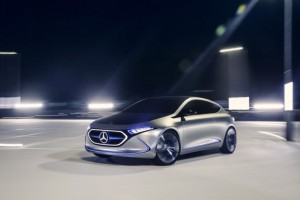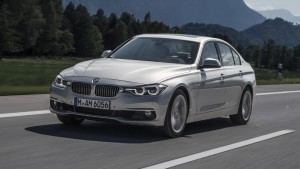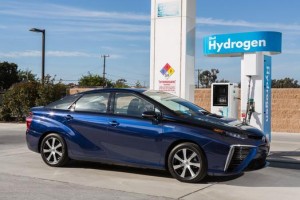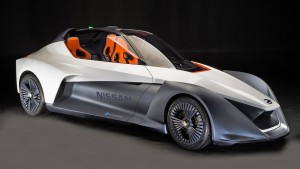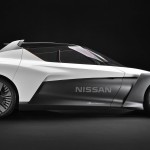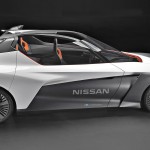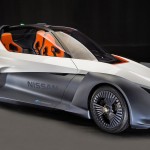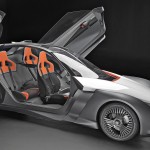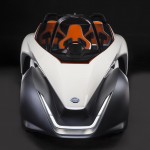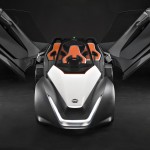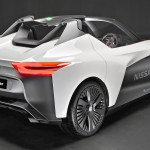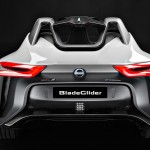Tag Archives: electric car
Mercedes-Benz Plans To Build Electric Compact Car In France
Daimler is investing as much as $589 million in Hambach, France to produce a small electric car for Mercedes-Benz. This is the first move by the German automaker to jumpstart its plans of producing 10 electric vehicles by 2022 and finally competing with US rival Tesla and its Model 3.
The Smart brand is producing all of its EVs in Hambach. Markus Schaefer said in a statement that the Smart plant in Hambach will become a part of the brand’s global compact car production network. The lead plant will be placed in Rastatt, Germany.
Mercedes is working to make its vehicle underpinnings suitable for the conditions it wants—to be able to mass produce a variety of electric vehicles in the same volume as models with gasoline, diesel, and hybrid engines. Such a move will allow the German automaker to boost production once the orders start to come in.
Making 620,000 units of compact vehicles last year, Mercedes is currently producing its compact A-Class, B-Class, and GLA models in Rastatt, Germany, in Kecskemet, Hungary, in Beijing, China, and in Aguascalientes, Mexico. Its US rival, Tesla, was able to deliver 101,312 vehicles last year.
There was no information what EV Mercedes is planning to initially produce, though the brand presented the Concept EQA in September. It is an electric car with a 250-mile range and has the ability to recharged without having to be plugged in.
The French plant is being adapted to make it possible to house a variety of EVs that Mercedes will have in the pipeline. Particularly, the facility is being readied for the first-ever Mercedes-Benz passenger car in France. It looks like Daimler is expecting orders to pour in for its electric compact car as its Hambach plant, where Daimler produces its electric and combustion-engined two-seater Smart vehicles, can already produce more than 80,000 units in a year.
BMW Prepares to Challenge the Tesla Model 3
The Tesla Model 3 is set to be revealed this month. Looming in the scene is BMW with its plan to launch an all-electric sedan to take on the company led by Elon Musk.
According to Trusted Reviews, citing German publication Handelsblatt, BMW has set its sights on introducing a car that will rival the Tesla 3 and the company will reveal it at the Munich Auto Show in September.
The Tesla Model 3 challenger will come from the 3 Series range of BMW. The fully-electric sedan will be the company’s first in its bid to enter the electric vehicle segment of the market, which is dominated by Tesla.
The source claimed that the electric 3 Series will have a range of at least 400 kilometers. No other details have been revealed yet though. It should be noted too that BMW had not released an official statement about the matter so take this with a grain of salt.
At present the BMW 3 Series saloon car has a starting price of £25,740. An electric variant of the vehicle might cost more than that due to the cost of developing and manufacturing one. Add to that the expenses of sourcing parts like the battery and electric motor. On the other hand, the German luxury automaker might not jack up the value of the coming EV too much so that it will be competitive with the pricing of the Tesla Model 3.
The BMW 3 Series has been in production since 1975. The product is the entry-level luxury car of the German automaker. The vehicle is currently in its sixth generation model.
A plug-in hybrid model of the 3 Series was introduced last year. The car has gained good reviews so for its design and easy-to-use features. We think it is just right for BMW to follow up on its success by producing its new EV under the 3 Series platform.
Testing of Hydrogen Fuel Cell Toyota Cars in China Will Start in October
Toyota Motor Corp said during the 2017 Shanghai Auto Show that it will begin testing its hydrogen fuel cell cars in China by October. The move is for the company evaluate the feasibility of bringing the Mirai in the giant Asian country’s market.
According to Reuters, Hirohi Onishi, Toyota’s head of business in China, revealed that the automaker is planning to construct a hydrogen fuel station in Changshu City in the eastern part of Jiangsu province during the testing phase. He stated that promotional activities will be made in line with the arrival of their product in the country to gauge how receptive are the Chinese consumers to the vehicle.
The Japanese brand finds putting the hydrogen fuel cell-powered Toyota cars in China challenging though. Automotive News reported that there are only five hydrogen stations in the country. The facilities are centered around the cities of Beijing, Shanghai and Guangzhou. The Toyota station would be the first in Changshu.
Presently, the Toyota Mirai is sold in Japan, United States of America and Europe. From the said regions, the company has sold 3,000 units of the car. Australia, United Arab Emirates and Canada will also be the location of the other testing areas for the hydrogen fuel cell Toyota cars.
Lately, the Chinese government has implemented strict measures to curb the alarming pollution in the country. As a result, more automakers are investing into bringing their electric cars in that location. Recognizing the strong demand for EVs, even luxury car makers like Mercedes-Benz and Audi are taking their game into the electric car segment of the Chinese market.
With such a stiff competition looming in the electric car business, it remains to be seen how the Mirai will be received by China’s consumers. Everything will be made clear once it arrives in the Chinese roads for testing.
Ultra-Luxurious Vision Mercedes-Maybach 6 Makes Its Debut
In addition to the Cadillac Escala, another concept car that has is being talked about at present is the Vision Mercedes-Maybach 6. After releasing a series of teasers in the form of photos and a video, the ultra-luxury arm of the three-pointed star brand finally unveiled the two-door coupe prototype.
According to the Global Media Site of Daimler, the Vision Mercedes-Maybach 6 is an electric car. The output of the vehicle’s power unit is very impressive as it is capable of producing up to 550 kW (750 hp). The low underfloor battery of the auto gives it a usable capacity of around 80 kWh and allows it to cover a range of over 500 kilometers at full charge based on an NEDC data while EPA puts the figures at 200 miles.
The output of the electric battery lets the car go from zero to 100 km/h in less than four seconds. On the other hand, its maximum speed is electronically-limited to 250 km/h. The quick charging feature of the auto provides it a charging capacity of 350 kW while it can gain an additional range of 100 kilometers in merely five minutes of charging.
The ultra-luxurious coupe was already unveiled at the Monterey Peninsula on August 16, 2016. The car will continue to be showcased there until August 21, 2016 during the Pebble Beach Concours D’Elégance.
Mercedes-Maybach mixes the elements of hotness and coolness into the styling of the Vision 6. The emotional design and the intelligent details of the car respectively make up the mentioned elements.
The long hood of the Vision Mercedes-Maybach 6 coupled with its low roofline and greenhouse’s rearward positioning pays homage to the coupes made long ago. However, Daimler reminds us that the vehicle does not possess a retro design. Instead, it is a reinterpretation of classic and aesthetic principles.
Despite the lack of spoilers, the intelligent basic shape of the concept car makes it aerodynamically-efficient. The styling is also in line with Mercedes’ design philosophy of sensual purity.
New Nissan BladeGlider Edges Close To Production
We had a sighting of the new Nissan BladeGlider, which, contrary to how we met it before in its concept form, is a little close to being production legible. Notice how the form is a little neutered? It’s still not anywhere near a production car, but it looks like Nissan is proving its promise to bring the BladeGlider to showrooms.
Originally introduced during the 2013 Tokyo show concept, the car was so out-of-this-world that we deem it impossible to see a production version anytime soon. For now, it’s dubbed as the BladeGlider v2, an “advanced prototype.”
The differences between the original concept and this one made us think it’s possible to see these with licensed plates soon. After all, Nissan made sure the front and rear widths are less disparate, though still at “odds” with each other. The widths are, of course, inspired by DeltaWing badge.
The BladeGlider is being described by a source as an electric car for car lovers, with specs that definitely prove such claims. It’s a rear-wheel-only drive, each one having its own 130kW motor. The total system output is 264 bhp and 521 lb. ft. Not bad at all for an electric car.
It weighs around 1,300 kg, which is a lot in terms of racing car specs. Remember, though, that the BladeGlider also packs batteries. In terms of sizing, the BladeGlider should compete with the likes of Ford Focus (in terms of length, width and wheelbase) or the Nissan electric Leaf.
The car is powered with a mixture of two motors via torque vectoring. It has three modes—off, agile and drift. There are no details yet regarding powersliding, though we can only imagine how that would feel with the BladeGlider.
Britain’s Williams Advanced Engineering will provide the powertrain, which has a top speed of 118mph, and takes 0 to 60 mph in less than five seconds.
Two of the BladeGliders are on their way to Rio de Janeiro for the Olympics. Let’s see how the reactions will turn this advanced concept into a production version.

